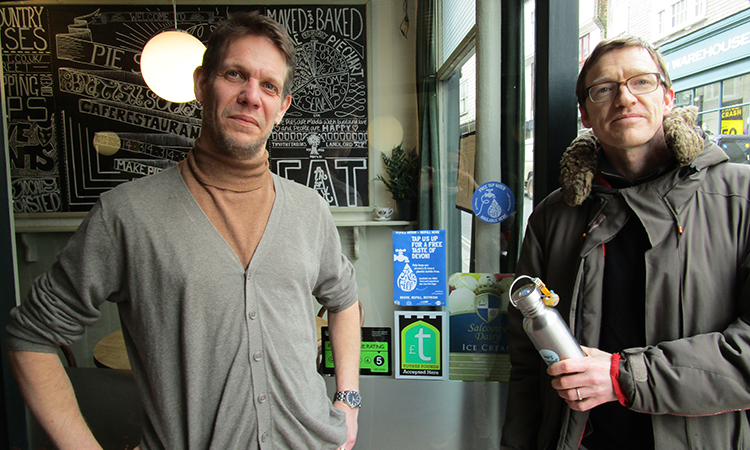Totnes, a town in the south of England where I live, is in the process of receiving the “Plastic Free Town” accreditation from Surfers Against Sewage, a grassroots movement that works to tackle plastic pollution and protect the U.K.’s coastlines for all to enjoy safely and sustainably. The organization hopes to establish 125 plastic free communities by 2020. More than 380 communities have already applied for the accreditation, in hopes of finding alternatives to single-use plastic of all types, including straws, bottles, packaging materials, takeaway boxes, disposable lighters, condiment sashes and more, reinforcing the relevance and urgency of this movement.
The data from Surfers Against Sewage paints a dire picture of plastic pollution. It’s estimated that there are now 5,000 items of marine plastic pollution per mile of beach in the U.K. alone. In 2016, there were 320,000,000 tons of plastic generated around the world, and that number is expected to double by 2034. Among all this waste, plastic bottles and plastic-lined takeaway coffee and tea cups are the biggest offenders.
Surfers Against Sewage is using people power and community action to tackle the problem of avoidable single-use plastics, and this is why people like Ben Bryant, a leader in Totnes promoting the plastic free movement, has put himself forward to volunteer on behalf of the campaign.
“It’s about time we review our relationship with plastic, especially unnecessary single-use types,” Bryant says. “It’s not necessarily about avoiding plastic altogether, more about considering how we misuse it and finding alternatives that are much more sustainable whilst engaging and educating others in this process.”
The approach to become a Plastic Free Town is based on a step-by-step community framework, uniting individuals, schools, businesses, community groups, and local governments to drive action on reducing use of single-use plastics.
“Instead of feeling overwhelmed by the issue, we can choose to do something about it, which is very empowering. In Totnes, so far, we have found ways to commit with alternatives by having local businesses replacing disposable coffee cups and lids as well as plastic straws for compostable or recyclable options, as well as signing up to the national Refill Scheme, which allows people to get their water bottles refilled for free,” Bryant says.
Along with the Plastic Free movement, initiatives such as the fee for plastic bags, which has made retailers provide around 83 percent fewer bags since it took effect, and the increase of independent Zero Waste shops, where you can purchase things in bulk using your own choice of reusable packaging, have contributed to a substantial change in the culture around plastic use in the U.K. Although plastic waste can seem like an overwhelming challenge — and in many ways it is — every action, big and small, helps.









